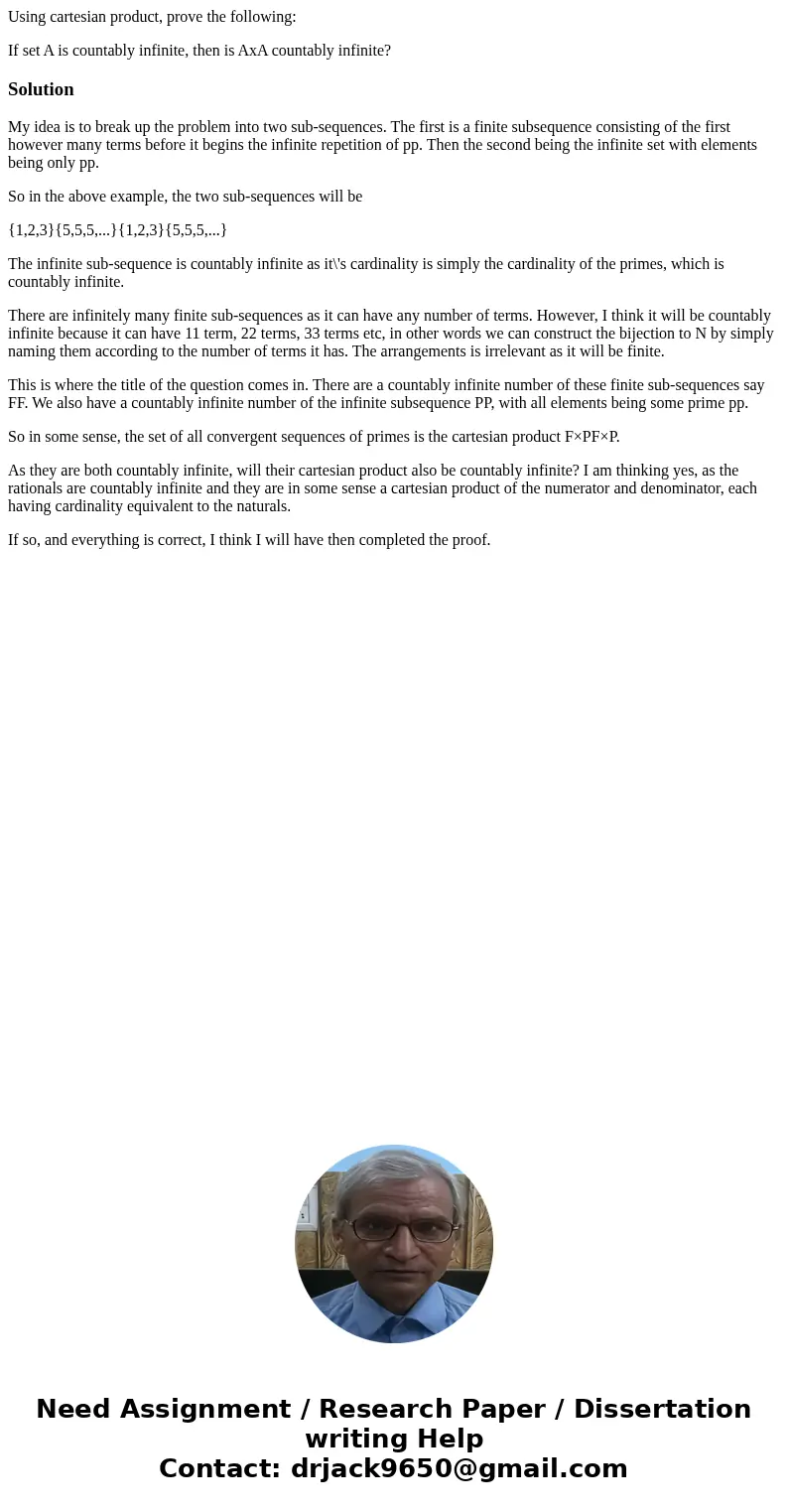Using cartesian product prove the following If set A is coun
Using cartesian product, prove the following:
If set A is countably infinite, then is AxA countably infinite?
Solution
My idea is to break up the problem into two sub-sequences. The first is a finite subsequence consisting of the first however many terms before it begins the infinite repetition of pp. Then the second being the infinite set with elements being only pp.
So in the above example, the two sub-sequences will be
{1,2,3}{5,5,5,...}{1,2,3}{5,5,5,...}
The infinite sub-sequence is countably infinite as it\'s cardinality is simply the cardinality of the primes, which is countably infinite.
There are infinitely many finite sub-sequences as it can have any number of terms. However, I think it will be countably infinite because it can have 11 term, 22 terms, 33 terms etc, in other words we can construct the bijection to N by simply naming them according to the number of terms it has. The arrangements is irrelevant as it will be finite.
This is where the title of the question comes in. There are a countably infinite number of these finite sub-sequences say FF. We also have a countably infinite number of the infinite subsequence PP, with all elements being some prime pp.
So in some sense, the set of all convergent sequences of primes is the cartesian product F×PF×P.
As they are both countably infinite, will their cartesian product also be countably infinite? I am thinking yes, as the rationals are countably infinite and they are in some sense a cartesian product of the numerator and denominator, each having cardinality equivalent to the naturals.
If so, and everything is correct, I think I will have then completed the proof.

 Homework Sourse
Homework Sourse